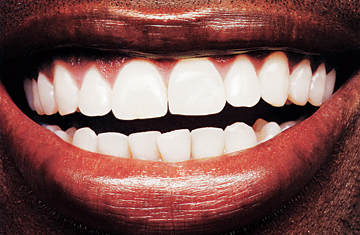
(2 of 2)
There's so much black irony in the cultural air that certain bold white auteurs are playing with it. On 30 Rock, Tina Fey gives us a black Harvard-educated character called Toofer (reminiscent of the upper-middle-class black kid on South Park who's called Token) and occasionally puts whites in blackface and blacks in whiteface. It's a circus of irreverence. Quentin Tarantino is also ironic with blackness and black film style. Jackie Brown was his attempt to make a modernized blaxploitation film. His upcoming Django Unchained will give us a free slave out for revenge (as opposed to, say, The Help, which is highly unironic and pretends to be as realistic as a documentary while giving us a sanitized Disneyfication of segregation).
Black irony's imperative to use blackness in independent ways responds to the mind-bending complexity of modern blackness, which is so diverse that it's impossible to wrap your head around all at once. It's a cavalcade of contrasts that offers no clarity as it serves up the spirit-lifting success of Barack Obama and the moral failure of Tiger Woods. We are the class of Michelle Obama and the crass of Nene Leakes. We are Spike Lee and Tyler Perry. We are Derek Jeter and Barry Bonds. We are Beyoncé and Waka Flocka Flame. The DuBoisian double consciousness has never been stretched wider or thinner.
All this at a moment when racism seems to have gained the ability to become invisible at will, so that some routinely challenge its very existence. While our parents battled oppression, we're left to explain that racism is still present to skeptical people who continue to benefit from white privilege but struggle to see how. Black irony also stems from the affirmative-action generation's not having to battle over de jure civil rights. We were never at war in the streets like black America's Greatest Generation: the civil rights--black power generation. That creates a dislocation from the trauma of the past and leads to a wry or ironic relationship to some of that past pain, even though we know all too well that it is not entirely past. Which is part of why we sometimes need to deconstruct conventions and be irreverent about blackness. Sometimes we simply want to feel free to be independently black rather than worship at the altar. And sometimes we need to laugh to keep from having our heads explode.
Touré is the author of Who's Afraid of Post-Blackness? and a columnist for TIME Ideas
Next: 7. High-Status Stress By Judith Warner
